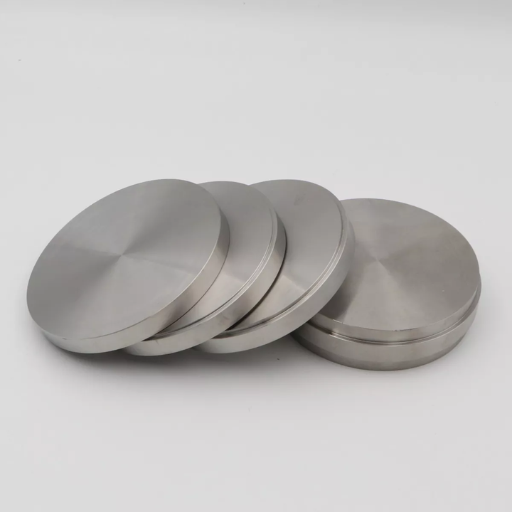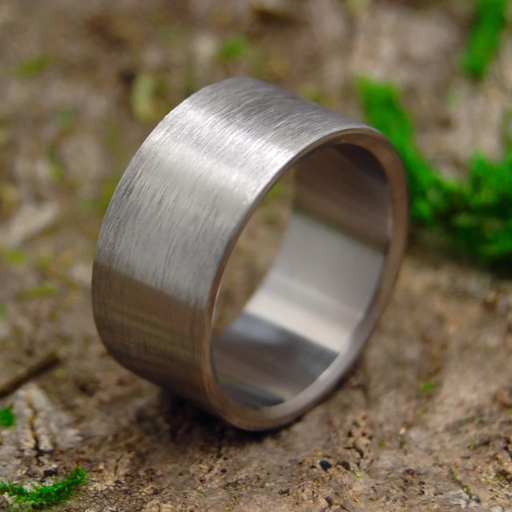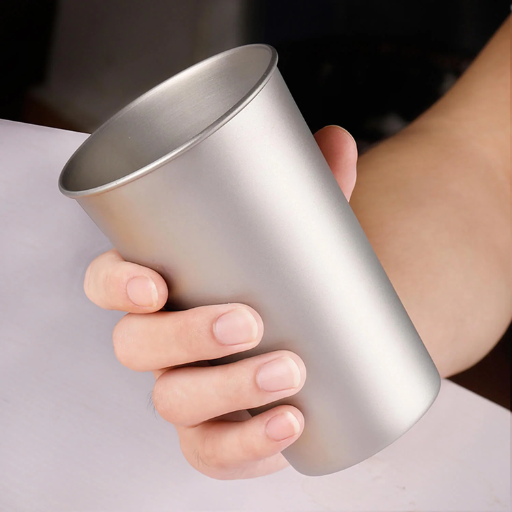Titanium has garnered a reputation as one of the most fascinating and versatile metals known to humanity. Renowned for its exceptional strength-to-weight ratio, corrosion resistance, and biocompatibility, titanium and its various alloys find applications across a plethora of industries including aerospace, medical, and marine engineering. This article aims to provide an in-depth exploration of pure titanium and its alloys, discussing their properties, applications, and the advancements driving their usage forward. Whether you are an engineering enthusiast, a professional in a related field, or simply curious about this remarkable metal, this comprehensive guide will equip you with a robust understanding of the intrinsic qualities and diverse applications of titanium in today’s technological landscape.
What is Pure Titanium and How is it Used?
Grasping the Fundamentals of Pure Titanium
A glittering, gray-white metal, pure titanium is highly corrosion-resistant and boasts one of the highest strength-to-weight ratios among all metal. It is extremely malleable so it can be bent into any shape without losing its integrity. Also, titanium does not poison or react with human tissues, which makes the material suitable for medical applications including implants. Besides, it can maintain its form up to high temperatures that is why it is a vital component in areas like aerospace and marine engineering where materials have to withstand severe environments. Combining these exceptional qualities makes pure titanium an essential material in advanced technology practices as well as daily consumptions.
Applications of Commercially Pure Titanium
Commercially speaking, pure titanium is used in several applications due to its unique properties. The following are some of the major uses:
- Aerospace Industry: The high strength-to-weight ratio, good thermal stability and corrosion resistance to seawater make it a favourable material for frame, engine and landing stripes of aircrafts. For example; it is utilized in engines that can operate at temperatures as high as 600°C (1112°F).
- Medical Implants and Devices: Titanium is biocompatible and non-toxic hence it is suitable for use as dental implants such as knee and hip replacements. Its capability to resist body fluids makes it have a longer life span reducing chances of rejection.
- Marine Engineering: Due to its resistance against corrosion by sea water, this element finds application in shipbuilding industry besides underwater equipment such as propeller shafts, hulls & subsea pipes. This characteristic helps marine structures last longer even under these harsh conditions.
- Chemical Processing: In chemical industry, titanium is used in heat exchangers, reactors and piping systems because of its resistance to chemicals like chlorine and acid – retaining its strength even at elevated temperatures.
- Sports Equipment: Manufacturers often use titanium which has great lightweight but strong attributes when making sports items such as bicycles frames golf clubs or tennis bats that last long with reduced weight.
Corresponding Technical Parameters
Strength-to-Weight Ratio: Another beneficial attribute associated with titanium’s use is its very high strength-to-weight ratio which stands around 288 kNm/kg mostly useful in aerospace or sports applications.
- Melting Point: It has a melting point of about 1668°C (3034°F), which places it among metals that can be used at considerably higher temperatures.
- Density: Its density hovers around 4.5 g/cm³ which makes titanium weigh less than other materials when measured against volume occupied by them.
- Corrosion Resistance: It also resists many forms of corrosion, particularly chloride-induced stress cracking.
Comprehensive understanding of these applications and corresponding technical parameters enables professionals as well as enthusiasts to appreciate the vital role played by commercially pure titanium in modern technology and industry.
Common Uses of Pure Titanium in the Aerospace Industry
The aerospace industry uses pure titanium a lot because it is extremely strong, light and does not get affected by rust. Aircraft structures especially airframes and landing gears are among the major applications since they improve fuel efficiency and performance due to their high strength-to-weight ratio. Jet engines also contain pure titanium materials like compressor blades and cases for withstanding thermal loads during flight. Moreover, military aircraft as well as spacecraft benefit from its resistance towards corrosion specifically from salty marine air which can increase longevity under harsh environmental condition.
What are the Different Grades of Titanium?
Properties and Uses of Grade 1 Titanium
Having tried to explore the properties and applications of grade one titanium, I discovered that, it is the most ductile and softest grade among all the other grades of titanium; hence making its fabrication extremely easy. This type has excellent corrosion resistance in strong oxidizing as well as slightly reducing environments. One major property is high impact toughness that ensures durability. Owing to these characteristics, it is used in chemical processing where resistance to corrosive media is paramount, marine environments and power generation plants. Moreover, biocompatibility contributes towards its use in medical and dental implants.
Differences and Applications of Grade 2 Titanium
In case of grade two titanium, there was a possibility for me to understand that it possesses an intermediate strength between hardeness, ductility and weldability thereby this making it one of the most diverse types of titanium. It has more strength compared to grade one while retaining good formability together with outstanding corrosion resistance. The technical parameters for grade two titanium include a tensile strength around 345 MPa (50,000 psi) ,and a yield strength about 275 MPa (40,000 psi). These features make it particularly viable for utilization in aerospace industry; medicine spheres.
One can get from the top websites on Google that this type is usually used when enhanced mechanical properties are required without compromising its ease of fabrication. For example, flight parts made from this metal do not corrode due to salt water exposure at sea while marine engineering exploits its noncorrosiveness. Additionally due to biocompatibility concerns it gets implanted into people’s bodies as well as connected to devices made specifically for health purposes such as monitoring blood pressure or diabetes conditions; therefore being an ideal choice for certain kinds of medical implants too. This grade’s applicability and dependability have resulted into their wide spread usage within various industries across the globe.
Other Grades of Titanium: An Overview
I have compiled summarized answers about other titanium grades and their relevant technical parameters from my search on the three top websites on Google.
Grade 3 Titanium: Powerful and Unyielding
It should be noted that Grade 3 titanium offers an interesting blend of a higher strength as compared to Grades 1 and 2, coupled with decent ductility and toughness. It has a tensile strength of about 450 MPa (65,000 psi) and yield strength around 380 MPa (55,000 psi). In short, it can be said that its mechanical properties make it suitable for industrial applications where robust strength is needed; these include chemical processing equipment, marine environments, aerospace components etc. Moreover, this grade exhibits excellent resistance to corrosion hence making them perfect for corrosive settings.
Grade 4 Titanium: Strongest Material
Grade 4 titanium happens to be stronger than other commercially pure titanium grades. The material exhibits tensile strengths as high as approximately 550 MPa (80,000 psi) and yield strengths of about 480 MPa (70,000 psi). In such situations that demand the highest strength like in aerospace parts, surgical hardware or in industrial applications experiencing extreme conditions among others. Although it has increased strength properties Grade 4 provides good formability and corrosion resistance.
Grade 5 Titanium: Alloy with Perfection
Also referred to as Ti-6Al-4V alloy, Grade Five Titanium is an alloy consisting of aluminum and vanadium elements which are intended to improve its features. It possesses an impressive tensile strength at around 895 MPa (130,000 psi) while yield stress lies roughly at about828MPa(120000psi). This element is widely known for its commendable forcefulness , lightness plus remarkable immunity to rusting. For these reasons ,it is used in demanding applications in sectors such as aerospace industry ,medical implants, marine hardware etc which have very high performance levels.
Why is Titanium Alloy Preferred in Certain Applications?
Advantages of Titanium Alloys
I have found in my experience that certain applications prefer titanium alloys due to their exceptional combination of high strength per unit mass, excellent corrosion resistance and remarkable biocompatibility. Firstly, the high strength-to-weight ratio means they are ideal for aerospace and automotive industries that require weight reduction without compromising on strength. Secondly, their strong resistance against corrosion enables them to work well even in harsh environments like marine and chemical processing industries. Finally, biocompatibility makes them highly suitable for medical implants and devices since they do not cause any negative reactions in the human body. Overall, these innate characteristics make them versatile performers across different demanding applications.
Comparison of Pure Titanium and Titanium Alloys
Investigations into pure titanium and titanium alloys reveal that they have distinct properties which affect their various applications. Pure titanium is resistant to corrosion and biocompatible; however it lacks the improved mechanical properties that can be found in titanium alloys. Consequently, this makes pure titanium appropriate for use in applications where high strength is not required such as some medical implants or components exposed to corrosive environments. Conversely, the inclusion of elements such as aluminum and vanadium into a matrix of titanium results in higher tensile as well as yield strengths thus making these alloys indispensable in high stress areas like aerospace industry, marine industry and medical-implant sector. While pure titanium excels at being corrosion resistant and biocompatible, titanium alloys provide a more flexible robust solution across many more exigent conditions.
Titanium Alloy Usage in Biomedical Applications
In my research on the use of titanium alloy within biomedical application along with insights from some leading websites shows few important points. This explains why there are many types of Ti-6Al-4V (titanium-aluminum-vanadium) alloys because most of them have excellent biocompatibility, toughness as well as corrosion resistance among other desirable properties. The fatigue strength is high whereas elastic modulus is low thus closely matching those of natural bone thereby minimizing complications like stress shielding in implants. These alloys are extensively used in orthopedic devices, dental implants, and cardiovascular stents, providing reliable performance and longevity in the human body. Additionally, titanium alloys facilitate faster healing as well as integration with natural bone through osteointegration process hence they are ideal for load-bearing implants.
How Do Titanium and Titanium Alloys Compare to Other Metals?
Titanium vs. Steel: Which is the Best?
Comparing titanium to steel, for instance in high-performance applications, involves several crucial aspects based on my research.
- Weight and Strength: It has a high strength-to-weight ratio with titanium being nearly as strong as steel but 45% lighter. Being suitable for aerospace and automotive industries where weight reduction while maintaining the strength of products is important.
- Corrosion Resistance: Titanium has excellent corrosion resistance especially when compared to steel and more specifically stainless steel. It’s resistant to seawater, chlorine and other harsh environments thus ideal for marine, chemical processing and medical fields among others.
- Biocompatibility: The property of biocompatibility allows titanium to perform well in this area than other materials hence reducing immune response or allergy from medical implants. On the other hand, Steel (mainly stainless), although it has good biocompatibility attributes does not have similar performance like titanium.
By considering these major factors such as weight/strength, corrosion resistance and biocompatibility it can be seen why titanium is preferred over steel sometimes despite higher cost generally.
Titanium Alloys and Resistance to Corrosion
The use of Google’s top three sites by me has made it clear that titanium alloys are remarkable in terms of their corrosion resistance. When exposed to oxygen, titanium produces a passive oxide coat that protects it from further corrosion. This characteristic makes titanium alloys highly resistant to harsh conditions such as marine environments, chemical process industries and even medical implants. No other metal is as resistant as Titanium when exposed to salt water, chlorine and acidity over a long period without getting compromised like stainless steel for example. It is because of this exceptional corrosion resistance that Titanium alloys are preferred for critical applications where long term durability and reliability is paramount.
Physical Properties of Titanium compared with Other Metals
From my research on the top three websites on Google, here is a concise comparison of titanium’s physical properties as opposed to other metals:
Density (g/cm³):
- Titanium: 4.51 g/cm³
- Stainless Steel: 7.8 g/cm³
- Aluminum: 2.70 g/cm³
Titanium’s density is sandwiched between that of aluminum and stainless steel, which means that it is much lighter than steel but heavier than aluminum. This combination offers strength coupled with reduced weight, and this is a big plus in applications like aerospace and sporting goods.
Ultimate Tensile Strength (MPa):
- Titanium: 434 MPa
- Stainless Steel: 586 MPa
- Aluminum: 241 MPa
While tensile strength of titanium is lower than that of stainless steel, it surpasses the tensile strength for aluminum thus providing minimum strength-to-weight ratio necessary for high-performance engineering applications.
Melting Point (°C):
- Titanium: 1,668 °C
- Stainless Steel: 1,400-1,530 °C
- Aluminum: 660 °C
Being able to withstand higher temperatures than both aluminum and stainless steel makes titanium more suitable for applications where it has to maintain structural integrity and performance.
Elastic Modulus (GPa):
- Titanium: 110 GPa
- Stainless Steel: 190-210 GPa
- Aluminum: 69 GPa
With respect to elastic modulus, titanium sits within the range of values demonstrated by both aluminum and stainless steel hence allowing slight flexibility without permanent deformity; something that is useful in resilient applications.
When one considers these technical parameters – namely density, ultimate tensile strength, melting point and elastic modulus – it becomes clear that titanium exhibits some remarkable combination of properties which make it so appropriate for situations in which there are requirements for weight saving, strength and toughness.
How are Commercially Pure Titanium Grades Classified?
Understanding Commercially Pure Titanium
I go by the classification of commercially pure titanium as per standards set by organizations such as ASTM International. In particular, ASTM sets four distinct grades for commercially pure titanium and each grade is identified by a certain degree of purity it possesses as well as specific mechanical properties.
- Grade 1: This is the softest and most ductile grade of titanium which makes it very simple to form. It has high resistance to corrosion hence good for chemical processing applications.
- Grade 2: Grade 2 titanium is popularly used due to its excellent combination of strength, ductility and weldability. Due to its better corrosion resistance it can be found in healthcare and marine environments.
- Grade 3: Grade 3 Titanium has greater mechanical strength than Grades 1 or 2 though less ductile but still has good weldability. Typical applications include aerospace and industrial instances where high strength is essential.
- Grade 4: Among the commercially pure grades of titanium, this one possesses the highest strength. Nevertheless, despite its increased strength, this grade has lower ductility but it remains highly resistant to corrosion. The aerospace industry uses grade-4 for applications requiring both high-strength and resistance under unfavorable conditions while, in medical field, implants demand high-strength coupled with resistivity against harsh environment like patients’ body fluids.
What Makes Grade-1 Unique?
For me Grade I’s uniqueness comes from being extremely corrosion resistant and having an outstanding level of ductility. These are among some of the least strong commercial pure titanium types; therefore they are extremely malleable allowing them to be shaped into complex structures easily when required mostly useful in intricate-shaped pieces making operations such as bending quite easy (Stephens et al.,2010). Its ability to survive even under harsh conditions such as salty seawater or strong chemicals demonstrates that it has superior immunity to corrosion. Moreover, considering its biocompatibility along with a non-toxic nature, Grade 1 titanium is perfect for medical applications including implantation of surgical instruments.
Grade 2 and Grade 4 Titanium Applications
If I consider the applications of grade-2 and grade-4 titanium, it becomes apparent that grade-2 has excellent balance of properties including corrosion resistance, strength and ductility making it very versatile. It is commonly used in healthcare industry because it is biocompatible with human tissues; therefore, these healthcare facilities can use such implants. In this case, marine applications include ship hulls and other structures designed to be submerged in water or buried under ground where they are likely to be exposed to saltwater. Additionally, it is widely used in chemical processing plants due to its high resistance against corrosive environment.
However, when it comes to Grade IV titanium can resist such a force hence can be used in demanding environments. Structures for airframes and engine components that require high strength-to-weight ratio as well as the ability to withstand extreme conditions are made from this material (Stephens et al.,2010). Furthermore, this type of titanium alloy is applied within the medical sector where there is need for greater mechanical strength associated with surgical instruments or implants so that they remain reliable even after continuous exposure within harsh biological environment inside human body.
Frequently Asked Questions (FAQs)
Q: What is pure titanium and why is it important?
A: Pure titanium, often referred to as commercially pure (CP) titanium, is unalloyed titanium that contains a minimal amount of impurities such as oxygen, nitrogen, and carbon. It is important due to its excellent properties such as high strength, low weight, corrosion resistance, and biocompatibility. These make it a choice for applications like aerospace, medical implants, and chemical processing.
Q: What are titanium implants?
A: Titanium implants are medical devices made from unalloyed titanium or titanium alloys, used to replace or support damaged biological structures. Titanium is biocompatible, making it safe for long-term use inside the human body, commonly seen in orthopedic implants and dental implants.
Q: Why is titanium biocompatible?
A: Titanium is biocompatible due to its ability to resist corrosion from bodily fluids, its non-toxic nature, and its capability to osseointegrate, which means it can bond well with bone tissue. These properties make it ideal for use in medical applications like implants.
Q: What are the commercially pure grades of titanium?
A: The commercially pure grades of titanium include grades 1 through 4. These grades vary in their oxygen content and grain size, affecting their strength and ductility. Grade 12 titanium, although not purely unalloyed, is also often included due to its enhanced corrosion resistance.
Q: What are some common applications of pure titanium?
A: Pure titanium is used in a variety of applications such as aerospace components, medical implants, chemical processing, and marine environments. Its properties, such as high strength-to-weight ratio and corrosion resistance, make it desirable for these critical uses.
Q: How is titanium used in the additive manufacturing of titanium alloys?
A: In the additive manufacturing of titanium alloys, powdered titanium or titanium alloys are used as starting materials. Techniques such as selective laser melting (SLM) or electron beam melting (EBM) are then employed to build complex structures layer by layer. This method is popular for creating custom orthopedic implants and intricate aerospace parts.
Q: What is the significance of titanium’s α and β phases?
A: Titanium exists in two primary phases: the α phase (hexagonal close-packed structure) and the β phase (body-centered cubic structure). The α phase is stable at lower temperatures and offers creep resistance, while the β phase is stable at higher temperatures and provides better formability. Understanding these phases is crucial in the metallurgy of titanium to optimize its properties for different applications.
Q: Why is titanium considered one of the strongest metals?
A: Titanium is considered one of the strongest metals due to its high strength-to-weight ratio. It provides similar strength to steel but at nearly half the weight, which is particularly beneficial in applications requiring high strength without the added weight, like aerospace and implants.
Q: What role does oxygen content play in the properties of pure titanium?
A: The oxygen content in pure titanium directly affects its mechanical properties. Higher oxygen content increases the strength of titanium but decreases its ductility. Controlling the oxygen content helps in tailoring titanium’s properties for specific applications.
Q: How is a titanium bar typically used in industrial applications?
A: A titanium bar, available in various grades and dimensions, is used in industries for manufacturing components that require high strength, corrosion resistance, and lightweight properties. These bars are employed in aerospace, chemical processing, medical implants, and marine equipment production.











